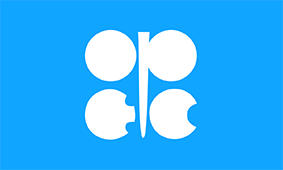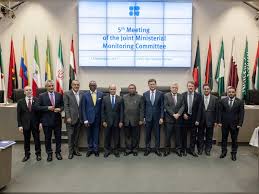
Q&A: UAE minister says time needed to rebalance market


The minister spoke to Argus in Baku, on the sidelines of the Opec/non-Opec Joint Ministerial Monitoring Committee (JMMC) meeting, about the alliance's production strategy and oil market fundamentals. Edited highlights follow:
How balanced do you think the market is right now, especially in terms of the escalating shortfall of medium and heavy sour crudes?
Some members of the Opec/non-Opec alliance that were not fully compliant with their cuts say they are gradually getting there, and we expect them to fully comply. With Russia, the [energy] minister [Alexander Novak] said it will be compliant in April. Kazakhstan has a maintenance shutdown scheduled, so this will reduce its output and compensate for overproduction in previous months. The Iraq [oil] minister [Thamir Ghadhban] mentioned that the country is going to cut output to meet its commitment. So, once all of these cuts are implemented, we will be able to determine where we go next. Whether the market is balanced in terms of different kinds of crude, especially heavier and sourer crudes, I think we need to wait and see more data because it is still unclear. There is definitely a shift in crude grades because of the sanctions [on Iran and Venezuela], and that raises another question of whether the [Iran] waivers will continue. That is another unknown and depends on the US administration.
And the operative date is 4 May?
Yes. The US will need to decide soon about waivers for Iranian exports because loading schedules are being finalised. My expectation is that it will give hints, as it did last time. In October last year, we began hearing some hints about the possibility of waivers.
Did you have an opportunity in Houston, at CeraWeek, to talk to some of the officials there?
We met, but we did not talk about the sanctions. The statements by secretary [of state Mike] Pompeo mentioned that this time they will be tougher, and that Iran will be under more pressure. I do not know if that is a hint that they will be more stringent or not. That remains to be seen. For us, we need to see that additional volumes are required before we go ahead and raise production. We are not going to produce more just on expectations. That is something we did before, and we overdid it, expecting that the sanctions would be more stringent. But they were relaxed and the market was oversupplied.
We should not do it again. As [Saudi Arabian oil] minister [Khalid] al-Falih mentioned, we will always be nimble to bring additional volumes if the market requires it, like we did in the summer. Raising production is quick for certain countries, and slower for others. But for us in the UAE, for Saudi Aramco, for Kuwait, it is easier for us to bring those volumes on if needed.
Al-Falih said that the Opec/non-Opec group is still some way from achieving its goal. What is that goal?
I think the five-year average is the benchmark that we are looking at in the short term. But once we reach that, then we can talk about which five-year average is the right one to look at. Is it the rolling average, or is it something else? We do not have the luxury of having that discussion before we at least get to that five-year average benchmark. That is the lower band. Then, if it has to be higher, that is another discussion. So now we are trying to get to the same balance we reached in the middle of 2018, and to keep it there we need to pedal, or even backpedal sometimes. And there are so many dynamics to consider — shale oil production, sanctions, natural decline rates… all of those parameters are affecting the market balance. Are we talking about products in inventories? Are we talking about crude? What kind of crude? All of those parameters will refine that target. But initially the target is to reach the market balance around the five-year average and maintain it.
How much flexibility does the UAE have when it adjusts its production for these cuts? Can you adjust it based on crude quality? Normally, countries maximise higher-quality lighter grades because they provide a better financial return.
That is true. But most UAE crude is light. Even the heaviest crude we have is still considered very light by international standards. We are trying to optimise the production we have to meet our customers' needs. We do not just sell to traders, we sell to customers and refiners that we have had long-term relationships with. And now we have investors as well, so the UAE, I think, is a bit different from a [company like Libyan state-owned] NOC that does not have partners and just decides to sell this crude or that crude. The dynamics in the UAE are a bit different in that sense.
But overall, we are seeing some decline in certain crudes from different countries for many other reasons. I think the objective is to bring confidence to investors to come and invest in the crudes required by the market. That is something we are aiming to do as a group — Opec and non-Opec.
Does the UAE have new production coming on stream this year? And if so, will it rest some of the fields to make room for the new production?
We have a target to build capacity, and by 2030 we are aiming for 5mn b/d. That is an additional 1.5mn b/d. We have a number of exploration activities under way, so in a few years, when we expect stronger demand for crude, we will be ready to supply the market.
If all of us do not invest, there will be a problem. That is why some, who can afford to, need to invest and make new resources available when, for example, shale oil plateaus and then starts to decline in the years to come. Production in some countries is also declining faster than expected because of a lack of investment. So much depends on investor confidence and whether they are willing to meet projected demand. If you do not invest, it is inevitable that production will go into decline.
Did you hold bilateral meetings with any companies when you were at CeraWeek? Some of the big US independents?
We usually meet with a group of independents, as well as the IOCs [international oil companies] that are investing there. And the nature of the discussion is purely technical — we do not talk about commercial matters — around how much is expected. Obviously, in the fourth quarter, there had been some concern from investors and shareholders over return on investments versus just investing.
Because of the [price] decline in the fourth quarter, some investors are concerned about whether to reinvest or take the money. They are reassessing their budgets for the year and may revise them to reflect the new expectations for 2019. So that is something we are watching.


Trump weighs using $2 billion in CHIPS Act funding for critical minerals

Codelco cuts 2025 copper forecast after El Teniente mine collapse

Electra converts debt, launches $30M raise to jumpstart stalled cobalt refinery

Barrick’s Reko Diq in line for $410M ADB backing

Abcourt readies Sleeping Giant mill to pour first gold since 2014

Nevada army depot to serve as base for first US strategic minerals stockpile

SQM boosts lithium supply plans as prices flick higher

Viridis unveils 200Mt initial reserve for Brazil rare earth project

Tailings could meet much of US critical mineral demand – study

Kyrgyzstan kicks off underground gold mining at Kumtor

Kyrgyzstan kicks off underground gold mining at Kumtor

KoBold Metals granted lithium exploration rights in Congo

Freeport Indonesia to wrap up Gresik plant repairs by early September

Energy Fuels soars on Vulcan Elements partnership

Northern Dynasty sticks to proposal in battle to lift Pebble mine veto

Giustra-backed mining firm teams up with informal miners in Colombia

Critical Metals signs agreement to supply rare earth to US government-funded facility

China extends rare earth controls to imported material

Galan Lithium proceeds with $13M financing for Argentina project

Kyrgyzstan kicks off underground gold mining at Kumtor

Freeport Indonesia to wrap up Gresik plant repairs by early September

Energy Fuels soars on Vulcan Elements partnership

Northern Dynasty sticks to proposal in battle to lift Pebble mine veto

Giustra-backed mining firm teams up with informal miners in Colombia

Critical Metals signs agreement to supply rare earth to US government-funded facility

China extends rare earth controls to imported material

Galan Lithium proceeds with $13M financing for Argentina project

Silver price touches $39 as market weighs rate cut outlook

















